
In May this year, the High Court (the UK’s most powerful law court) ruled that the Government wasn’t breaking the law when in 2019 it began to allow the testing of some make-up ingredients on animals. Scientists in the UK are allowed to test medicines or food products on animals to see if they are safe for humans. However, since 1998 it’s been against the law to test cosmetics (make-up) or make-up ingredients on animals. Advertising products or ingredients tested on animals is also banned.
The Government changed the rules in 2019 to fit with European Union (EU) regulations that govern the safety of chemicals, including some used in cosmetics. The EU (a group of 27 countries in Europe that work and trade together) allows the testing of substances on animals but only as a “last resort” to keep workers safe when they are making cosmetics. Some of the chemicals may damage people’s health if they are handling them.
Esta historia es de la edición Issue 63 de The Week Junior Science+Nature UK.
Comience su prueba gratuita de Magzter GOLD de 7 días para acceder a miles de historias premium seleccionadas y a más de 9,000 revistas y periódicos.
Ya eres suscriptor ? Conectar
Esta historia es de la edición Issue 63 de The Week Junior Science+Nature UK.
Comience su prueba gratuita de Magzter GOLD de 7 días para acceder a miles de historias premium seleccionadas y a más de 9,000 revistas y periódicos.
Ya eres suscriptor? Conectar
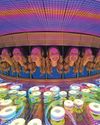
Camera Obscura
Imagine stepping inside a dark room, where the only source of light comes through one small hole in the wall.

MANCHESTER SCIENCE FESTIVAL
From 18-27 October, shoppers at the Arndale shopping centre in Manchester, England, will face a giant spider.

Should musicians stop touring?
Multiple concerts travelling around the world have a big impact on the environment.
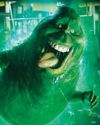
Are ghosts real?
Plenty of people believe in ghosts, but it's hard to find proof.

SMASH STEREOTYPES
In an extract from his prize-winning book, scientist and writer Adam Rutherford shows you how to use the power of science to fight racism. This chapter, titled Myth-Busting, is all about sport.

Animal awareness
What would it feel like to be another animal?

Hamza Yassin
Go behind the camera with a wildlife filmmaker.
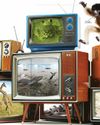
WILDLIFE WATCH
Ben Hoare goes on a safari from his sofa to discover how nature documentaries are made.
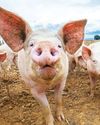
Big bum breakthrough
A team of researchers who found out that mammals can breathe through their bottoms have won a prize at the lg Nobel awards.
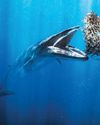
A jaw-dropping undersea snap
A photograph of a Bryde's whale feeding on a heart-shaped \"bait ball\" of sardines has won the Ocean Photographer of the Year contest.